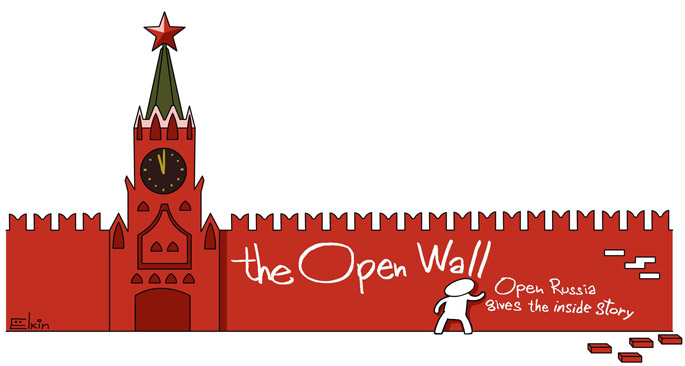Playing both sides off against the middle
Playing both sides off against the middle
The frozen conflict in Nagorno-Karabakh has been well and truly defrosted, now that Azerbaijan and Armenia are taking pot shots at each other. But what’s the Kremlin up to?

The deep frozen conflict in Nagorno-Karabakh, between Azerbaijan and Armenia, which had held for 22 years, came to an end on the night of April 2. Accusing each other of fomenting a new war, the two sides both launched offensive operations involving tanks, helicopters and heavy artillery.
Both sides are reporting contradictory information regarding the number of casualties, but it is clear that the flare-up has already resulted in dozens of fatalities. According to the UN, at least 30 people have been killed in the conflict zone, with more than 200 wounded.
Nagorno-Karabakh became a bone of contention between Armenia and Azerbaijan back in the Soviet era – the conflict began 28 years ago, when the authorities of the region, populated predominantly by Armenians but recognised as part of Azerbaijan, declared their desire to join Armenia. The upshot of the subsequent escalation of violence was that all Azerbaijanis were forcibly deported from Armenia within the course of a single year. Azerbaijan responded in kind, with the Azerbaijani cities of Sumgait and Baku also witnessing pogroms, which claimed dozens of Armenian lives. A Nagorno-Karabakh Republic was proclaimed in September 1991 (and is yet to be recognised by a single UN member state). The following January, a war erupted, which dragged on for two years, with estimates of the total death toll ranging from 15,000 to 25,000.
Azerbaijan, which lost 13% of its territory to the “republic,” regards Nagorno-Karabakh as an occupied region – and patriotic calls for revenge have never subsided in Baku.
Russia has responded to the current flare-up by making various irenic statements: Vladimir Putin has telephoned the presidents of Armenia and Azerbaijan, urging them to put an end to the fighting, while Foreign Minister Lavrov and Defence Minister Sergei Shoigu have reportedly made similar efforts to broker peace.
On the face of it, Russia appears to be playing the role of honest broker. But political analyst Stanislav Belkovsky believes there’s more to Moscow’s stance on the conflict than meets the eye. Putin, he says, could use the region as a bargaining chip while negotiating – perhaps repairing – relations with Recep Tayyip Erdoğan (Turkey being a staunch supporter of Azerbaijan); or he could exploit the flare-up as a situation that he has the capacity to influence.
One way of achieving just that is to continue supplying both sides with weapons: Azerbaijan has purchased $4 billion worth of Russian arms in recent years; Armenia, though far more modest in its outlay, still wields a significant arsenal. In addition, aiding and abetting the two sides in various political or ideological provocations would allow Russia to heat up or cool down the situation in and around Nagorno-Karabakh as rapidly as it might desire.
Meanwhile, a separate intrigue is developing around the involvement in the conflict of a NATO country – Turkey. Having apparently stepped back in Syria, Putin might still be looking to put to the test Article 5 of the NATO Charter, which states that an armed attack against one or more NATO member countries will be regarded as an attack against them all. It’s obvious that Article 5 would come into play if Turkey itself were attacked, but if Turkey sent troops to Azerbaijan with the intention of invading Karabakh, perhaps NATO would fail to support one of its members, suggesting that the notion of a monolithic NATO front against the Kremlin is somewhat exaggerated?
Without Turkish support, Azerbaijan is unlikely to attempt to solve the Nagorno-Karabakh problem by military means. However, if Turkey allows itself to be dragged directly into the Karabakh conflict, Putin won’t fail to take into consideration that Russia, just like Armenia, is a member of the Collective Security Treaty Organization (CSTO being a regional NATO analogue for six CIS countries). The Kremlin, then, can enter the fray directly whenever it senses that, on the one hand, a Russian intervention would be necessary or sufficient to drive back and defeat Azerbaijani-Turkish forces; and to play the peacemaker on the other.
Belkovsky isn’t ruling out the possibility that the flare-up in Nagorno-Karabakh has been indirectly stoked by Moscow: “Putin is clearly lacking some piece of the global jigsaw that would allow him to re-enter negotiations with the West over the fate of the world. So it’s important to engineer the conflict in just the right way, so Russia escapes any blame, and appears to be the peacemaker rather than the aggressor.”
Given this situation, Belkovsky believes that any cease-fire in the conflict zone will be extremely fragile. “Against the backdrop of a protracted conflict between Putin and Erdogan that won’t be resolved until one of them departs the scene (and neither is about to do so voluntarily), the Karabakh war could erupt anew at any time.”
With everything going pear-shaped at home, Putin would love to be cast in the repeat role of peacemaker, which is why he needs as much instability abroad as he can foment, for as Belkovsky says, “whoever ignites a conflict also extinguishes it.”




